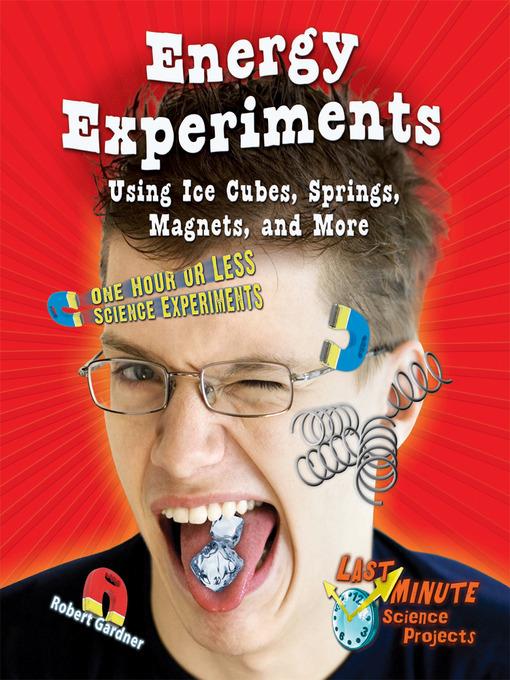
Energy Experiments Using Ice Cubes, Springs, Magnets, and More
One Hour or Less Science Experiments
فرمت کتاب
ebook
تاریخ انتشار
2013
Lexile Score
850
Reading Level
4-5
نویسنده
Robert Gardnerشابک
9781464510533
کتاب های مرتبط
- اطلاعات
- نقد و بررسی
- دیدگاه کاربران
نقد و بررسی

November 1, 2012
Gr 5-9-These books all begin with the same dilemma: a student has procrastinated. His or her science project is due tomorrow, but there's a solution: projects that can be done in an hour or less. Unfortunately, many, if not most, of the items on the "What You Need" lists for several of the experiments are specialized. For example, in Atoms it is suggested that oleic acid be borrowed from a science lab; in Electricity, a microammeter is needed; Energy requires an immersion heater; etc. No sources for these items are given. There's another big problem for quick experiments: Many of the formulas often require prior knowledge on the part of students. For example, the complicated equation to determine the kinetic energy of a basketball in Energy results in "joules or newton-meters"-neither of which is defined. Attractive volumes, but not very user-friendly.
Copyright 2012 School Library Journal, LLC Used with permission.

December 1, 2012
Grades 4-7 A procrastinator's delight, this invitingly slender entry in the Last Minute Science Projects series offers 18 demonstrations of physics and energy transfer that can be set up in an hour or less. Utilizing materials that range from a small solar cell to tin cans, foam cups, or, in one notable case, a rubber band and nothing else, each idea comes with a quick What's the Plan? overview, step-by-step directions enhanced by a lucid, colorful cartoon illustration, and a specific What's Going On? analysis with relevant mathematics and terminology. While leaving the details of actual project design and presentation to readers, Gardner does suggest possible variations or extensions for each entry, should time be not so pressing. He also supplies pithy, cogent notes at the outset about safety, the scientific method, and the necessity for every science project to feature some creative element.(Reprinted with permission of Booklist, copyright 2012, American Library Association.)

























دیدگاه کاربران